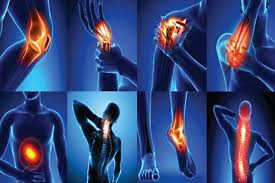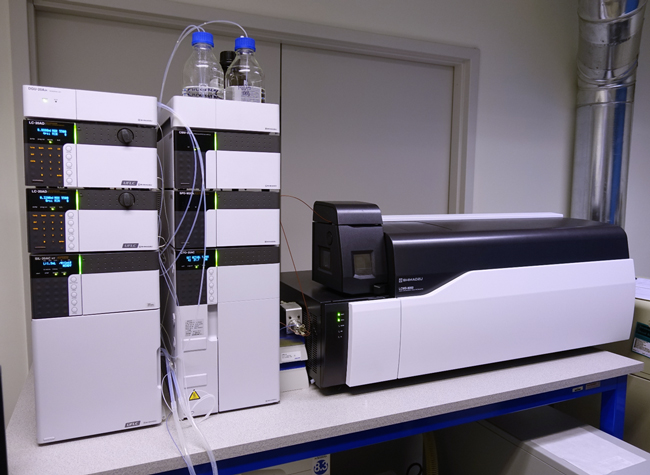Emotional or physical pain has a significant effect on mental health and vice versa. The relationship between pain and mental health is a complicated and diverse phenomenon that affects people’s functionality, well-being, and quality of life. This article examines the complex relationship that exists between pain and mental health, including the ways in which they interact, intersect, and impact one another.
The Mutual Association Between Mental Health and Pain
There is a reciprocal relationship between pain and mental health, whereby both can impact and exacerbate the other. Comorbid mental health illnesses such as depression, anxiety, and post-traumatic stress disorder (PTSD) frequently coexist with chronic pain conditions like fibromyalgia, arthritis, and migraines. On the other hand, people who are experiencing mental health problems could exhibit physical signs of pain as a result of their emotional misery.
Pain’s Effect on Mental Health
The psychological and emotional impacts of chronic pain can be substantial, resulting in feelings of hopelessness, frustration, and despair. Persistent pain can undermine people’s sense of self, identity, and agency, affecting their everyday functioning, relationships, and employment. Chronic pain can have an emotional toll that makes anxiety and depression worse, which can result in social disengagement, loneliness, and a lower standard of living.
How Mental Health Affects Perception of Pain
On the other hand, mental health conditions can affect how people perceive and feel pain. For example, anxiety and depression can increase pain sensitivity, intensify pain signals, and reduce pain tolerance. Mentally ill people may also be more likely to catastrophize—that is, to exaggerate the severity of pain and its effects—which can result in additional discomfort and impairment.
Shared Pathways and Common Risk Factors
The co-occurrence of pain and mental health disorders is facilitated by shared risk factors and underlying biological mechanisms. For instance, long-term stress can cause the body’s stress response system to become dysregulated, which can exacerbate inflammation, sensitivity to pain, and vulnerability to mental health issues. Similar to this, changes in neurotransmitter systems like dopamine and serotonin influence how pain is perceived as well as how mood is controlled.
Trauma and Adversity’s Role
Adversity and trauma are frequently linked to the emergence of mental health issues as well as chronic pain. Abuse, neglect, or loss experienced as a child can raise a person’s susceptibility to mental health problems and chronic pain diseases in later life. Adverse childhood experiences (ACEs) have been associated with changes in the structure and function of the brain, as well as a dysregulation of the body’s stress response system, which puts people at risk for mental health issues and chronic pain.
The Value of Thorough Evaluation and Therapy
In order to meet people’s holistic requirements, thorough assessment and treatment methods are crucial, given the intricate interactions between pain and mental health. In-depth assessments are necessary for healthcare professionals to pinpoint and treat the underlying medical, psychological, and social causes of people’s pain and mental health problems.
Approaches to Multidisciplinary Treatment
The best methods for treating pain and mental health issues are multidisciplinary therapy plans that incorporate social, psychological, and medical interventions. For example, cognitive-behavioral therapy (CBT), which addresses maladaptive beliefs, feelings, and behaviors that contribute to discomfort, has been demonstrated to be beneficial in treating mental health disorders as well as chronic pain.
Handling Misconceptions and Stigma
It is imperative to tackle the stigma and misconceptions related to pain and mental health in order to facilitate early intervention and adequate care access. Destigmatization initiatives, education campaigns, and awareness-raising initiatives can all work to dispel myths about pain and mental health and promote compassion, understanding, and support for those who are facing these difficulties.
Breakthrough: Understanding the Connection Between Pain and Mental Health
Emotional or physical pain is a very private experience that can have a significant impact on mental health. Similarly, difficulties with mental health can intensify physical discomfort, resulting in a convoluted and frequently debilitating circle of agony. In this investigation, we examine the complex relationship between pain and mental health, illuminating the ways in which they interact, shape one another, and affect people’s overall wellbeing.
The Relationship Between Mental Health and Pain
Pain and mental health are inextricably intertwined in a complex web of biological, psychological, and social elements that both influence and exacerbate the other. Comorbid mental health illnesses such as depression, anxiety, and post-traumatic stress disorder (PTSD) frequently coexist with chronic pain conditions like fibromyalgia, arthritis, and migraines. On the other hand, people who are experiencing mental health problems could exhibit physical signs of pain as a result of their emotional misery.
Pain on a Physical and Emotional Level
People who experience chronic physical pain may experience substantial mental health consequences, such as frustration, pessimism, and despair. Persistent pain can undermine people’s sense of self, identity, and agency, affecting their everyday functioning, relationships, and employment. Chronic pain’s emotional toll can worsen anxiety and depressive symptoms, which can result in social disengagement, loneliness, and a lower standard of living.
Perception of Pain and Mental Health
On the other hand, mental health conditions can affect how people perceive and feel pain. For example, anxiety and depression can increase pain sensitivity, intensify pain signals, and reduce pain tolerance. Mentally ill people may also be more likely to catastrophize—that is, to exaggerate the severity of pain and its effects—which can result in additional discomfort and impairment.
Shared Pathways and Common Risk Factors
The co-occurrence of pain and mental health disorders is facilitated by shared risk factors and underlying biological mechanisms. For instance, long-term stress can cause the body’s stress response system to become dysregulated, which can exacerbate inflammation, sensitivity to pain, and vulnerability to mental health issues. Similar to this, changes in neurotransmitter systems like dopamine and serotonin influence how pain is perceived as well as how mood is controlled.
Trauma and Adversity’s Effects
Adversity and trauma are frequently linked to the emergence of mental health issues as well as chronic pain. Abuse, neglect, or loss experienced as a child can raise a person’s susceptibility to mental health problems and chronic pain diseases in later life. Adverse childhood experiences (ACEs) have been associated with changes in the structure and function of the brain, as well as a dysregulation of the body’s stress response system, which puts people at risk for mental health issues and chronic pain.
Ending the Suffering Cycle
A comprehensive strategy that takes into account the demands of both physical and mental health is needed to break the cycle of suffering. In order to identify and treat the underlying physical, psychological, and social variables that contribute to people’s pain and mental health symptoms, healthcare providers must perform thorough assessments. The best methods for treating pain and mental health issues are multidisciplinary therapy plans that incorporate social, psychological, and medical interventions.
Building Well-Being and Resilience
For those who are struggling with the relationship between pain and mental health, it is crucial to cultivate resilience and well-being. Reducing distress and promoting emotional well-being may entail implementing coping skills like mindfulness, relaxation techniques, and stress management practices. Creating a network of friends, family, and mental health specialists can also be a great way to get support and affirmation when things get tough.
Final Thoughts
The relationship between pain and mental health is a complicated and diverse phenomenon that affects people’s functionality, well-being, and quality of life. Mental health issues and chronic pain illnesses frequently coexist, aggravating one another’s symptoms and affecting people’s social, psychological, and physical well-being. Through the use of comprehensive evaluation and treatment approaches and an understanding of the reciprocal relationship between pain and mental health, we can enhance our ability to meet the holistic needs of individuals and foster resilience, recovery, and overall well-being.




